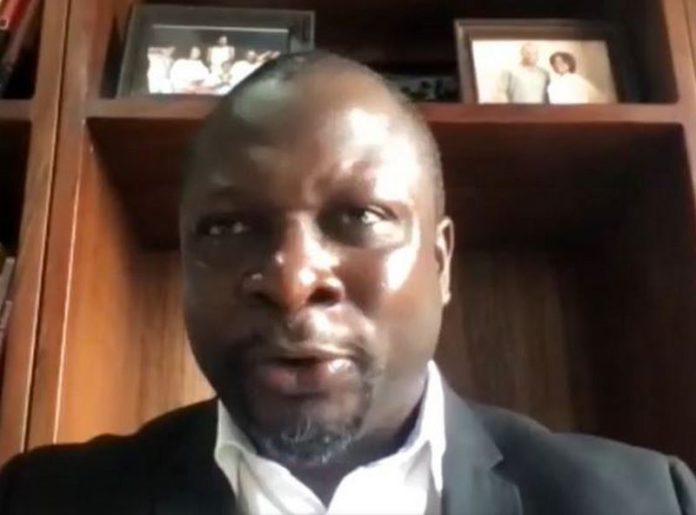The President of the Ghana Association of Bankers (GAB), John Awuah, has voiced strong concerns about the inefficiency of leadership structures in state-owned enterprises.
Specifically, Mr Awuah targeted the practice of appointing multiple Deputy CEOs.
In a candid statement, he questioned the necessity and efficiency of such practices, drawing comparisons with well-run global transport companies.
This perspective reflects the frustrations of many Civil Society Organisations (CSOs) like IMANI Africa and CDD Ghana as well as taxpayers who seek more effective management and accountability in state-owned enterprises.
Mr Awuah stated, “some of the appointment decisions in this country over the last two decades or perhaps more beat my small but thought-provoking mind. Why would a transport company of any size need three Deputy CEOs to run efficiently?” he quizzed.
The Bankers Association boss highlighted several examples from international transport businesses to illustrate his point:
- Northern Rail: Operating 3,500 services daily across over 500 stations with 345 trains, Northern Rail manages with just one Managing Director and no Deputy MDs.
- Transport for London (TfL): This extensive network, including the Underground rail service, Overground service, the Elizabeth Line, trams, and the Docklands Light Railway (DLR), moves millions of passengers daily with only one MD (Commissioner) and no Deputy MDs.
- Delta Airlines: The world’s largest airline operates with a CEO and one President, managing over 900 aircraft and more than 70,000 employees, flying over 520,000 passengers daily without any Deputy CEOs.
- Emirates Airlines: This airline runs with one President (CEO) and no Deputy CEOs, yet manages 260 aircraft and flies over 140,000 passengers daily.
- Ethiopian Airlines: With one Group CEO and no Deputy CEOs, Ethiopian Airlines operates 154 aircraft.
John Awuah argued that, these successful companies demonstrate a strategy of maintaining a lean leadership structure, which enhances efficiency and reduces bureaucratic red tape.
He suggested that the nomenclature assigned to roles can significantly impact compensation and operational efficiency.
“If the Deputy MD Operations’ role is to run the day-to-day operations of the company, call it Head of Operations or, given the span of control, you might want to refer to the role as the Chief Operating Officer,” he noted.
Highlighting the inefficiency of local examples, Awuah pointed out the case of Intercity STC, a struggling company with about 145 buses, of which only around 50 are roadworthy.
Despite its financial struggles and inability to pay workers’ pension deductions, the company employs three Deputy Managing Directors. “It just beats my small brains,” he stated.
Mr Awuah emphasised that an overstaffed executive tier leads to inefficiency and excessive bureaucracy, hampering the company’s performance.
“The way to make organisations, particularly State-Owned Corporations, ineffective and less efficient is to make the top-heavy resulting in unnecessary bureaucratic red tapes.”
He concluded with a call for lean and efficient organisational structures that prioritize profitability and employee welfare.
“Strategy without commensurate structure, they say, is bound to fail. Keep the company lean and efficient, declare profit for the state, pay workers well, and we will all be clapping for you. We will not clap for an array of MDs and their Deputies who are superintending over failing businesses.”
Read his statement below;
Some of the appointment decisions in this country over the last 2 decades or perhaps more beat my small but thought-provoking mind. Why would a transport company of any size need 3 Deputy CEOs to run efficiently? I looked up a few of the well-run transport businesses across the globe and found the following:
- Northern rail runs 3,500 services daily covering over 500 stations involving 345 trains. They have one MD and no Deputy MDs
- Transport For London (tfl) runs the Underground rail service, overground service, the Elizabeth Line, Trams, and the Docklands Light Railway (DLR). The Underground tube service alone moves about 4 million passengers per day, the buses move about 5 million passengers per day, Elizabeth moves over 700,000 passengers per day while the DLR moves over 600,000 passengers a day. This humongous organisation has one MD (commissioner) and no Deputy MDs.
- The world’s biggest airline, Delta Airlines runs with a CEO and 1 President. No Deputy CEOs. Delta operates over 900 aircraft and over 70,000 employees and flies over 520,000 passengers daily.
- Emirates Airlines has one President (CEO) and no Deputy CEOs yet it operates 260 aircraft and flies over 140,000 passengers daily
- Ethiopian Airlines has 1 Group CEO and no Deputy CEOs but operates 154 aircraft.
The above are just a few of the well-run Transport Companies in the world and it’s clear that they have a strategy of keeping the top lean and less heavy.
The nomenclature you assign to a role can have a significant impact on the size of compensation that is tagged to it. If the Deputy MD Operations’ role is to run the day-to-day operations of the company, call it Head of Operations or given the span of control, you might want to refer to the role as the Chief Operating Officer.
The way to make organisations, particularly, State state-owned corporations ineffective and less efficient is to make them top-heavy resulting in unnecessary bureaucratic red tape.
How can a struggling company like Intercity STC which operates about 145 buses with just about 50 roadworthy buses and is unable to finance payment of workers’ pension deductions, have 3 Deputy MDs? It just beats my small brains.
Strategy without commensurate structure, they say, is bound to fail. Keep the company lean and efficient, declare profit for the state, pay workers well and we will all be clapping for you. We will not clap for an array of MDs and their Deputies who are superintending over failing businesses.
This is the take of a troubled taxpayer.
John Awuah
Chief Executive Ghana Association of Bankers

